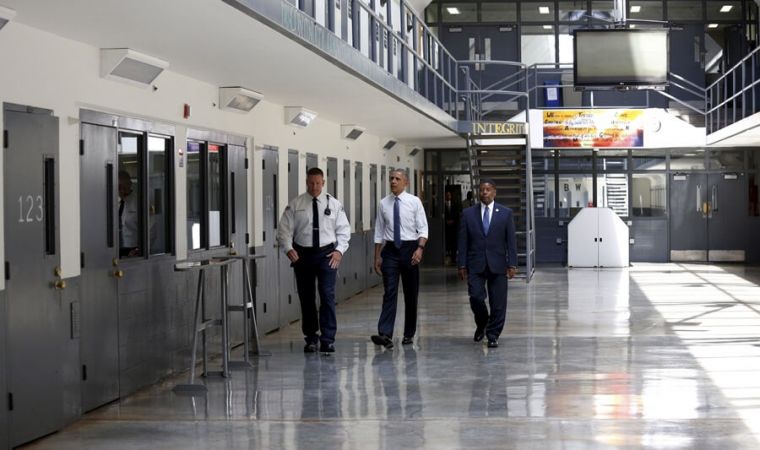Obama ban on pork in all federal prisons praised by Muslim group but draws doubts

The Obama administration has decided to ban pork products from being served in all federal prisons, drawing praise from the largest Muslim civil rights advocacy group in the US but raising doubts from one former police official and the nation's biggest pork producers.
Bureau of Prisons spokesman Edmond Ross said the pork ban took effect at the start of the new fiscal year on Oct. 1, a Washington Post report said.
Ross said the bureau imposed the ban on all the 122 prisons it runs nationwide after it conducted a series of surveys on the food preference of inmates. He said the surveys showed that pork was the least preferred meat among the inmates. Moreover, he said pork meat is "too costly."
However, Bernard Kerik, a former New York Police Department (NYPD) commissioner who served a three-year sentence in a federal prison, said he doesn't recall ever being "asked what kind of food do you like" while he was in prison.
"I was in the federal system for three years, I was never given a survey," Kerik told "Newsmax Prime" host J.D. Hayworth on Monday on Newsmax TV.
"I was never asked what kind of food do you like or you don't like.... And I will tell you, pork, bacon, was one of the hot commodities on the black market within the prison system."
Kerik spent time at a minimum-security federal prison camp from May 2010 to Oct. 2013 after he pleaded guilty to making false statements and tax charges primarily relating to his children's nanny and discounted apartment renovations.
Aside from being a former NYPD commissioner, Kerik also served as First Deputy and later Commissioner of the New York City Department of Correction. His job was to oversee the New York City jail system, including Rikers Island, one of the largest and most violence-prone prisons in the US.
He said he ran Rikers Island for six years (1995 to 2000), and during that time "I never had a big issue between pork or beef or anything else for that matter."
When asked by Hayworth whether he ever took a survey of Rikers' prisoners' food preferences, Kerik said, "No."
What he did notice, Kerik said, was that "there's a constant increasing recruitment of Muslim prisoners within the federal BOP."
The National Pork Producers Council was also sceptical of the Bureau of Prisons' decision to ban pork products in all US federal prisons that house a total of some 206,000 inmates.
"I find it hard to believe that a survey would have found a majority of any population saying, 'No thanks, I don't want any bacon,'" said Dave Warner, a spokesman for the group, according to the Washington Post.
Warner noted that one of the reasons why the Bureau of Prisons decided to ban pork was allegedly because of its higher cost. He said this is false. "Not to throw beef under the bus, but we cost a lot less than beef," he said.
Warner said pork is also nutritious. "A boneless pork chop or loin is a very healthy alternative to lots of other foods. If you compare a pork tenderloin to a rib eye steak and a boneless chicken breast, we come out pretty well," he said.
Meanwhile, the Council on American-Islamic Relations (CAIR) commended the Obama administration for "facilitating the accommodation of Muslim inmates," News Max said.
Non-pork meals have long been available to Jewish and Muslim detainees, who can't eat pork products for religious reasons.
Despite the pork ban, prisoners can buy packaged pork rinds and pre-cooked bacon in the prison commissary.











